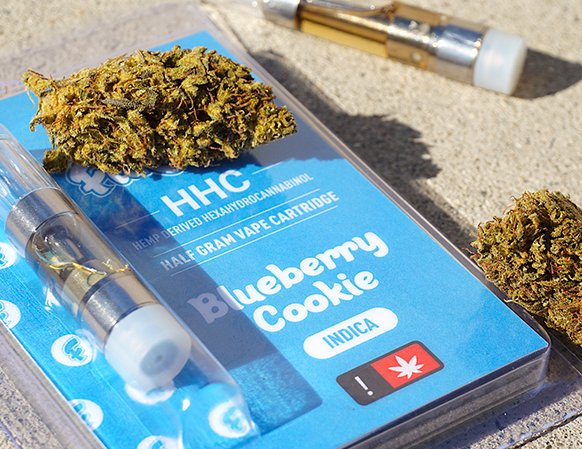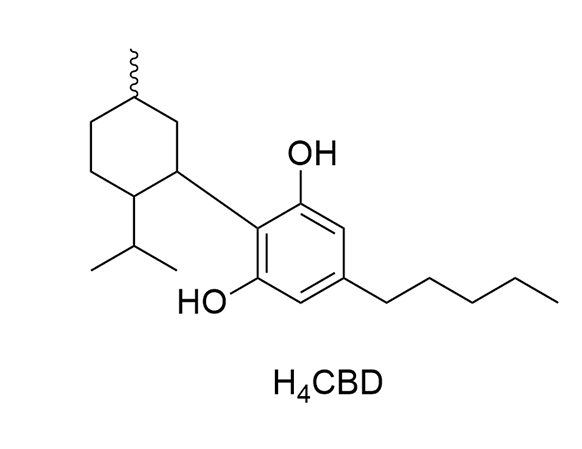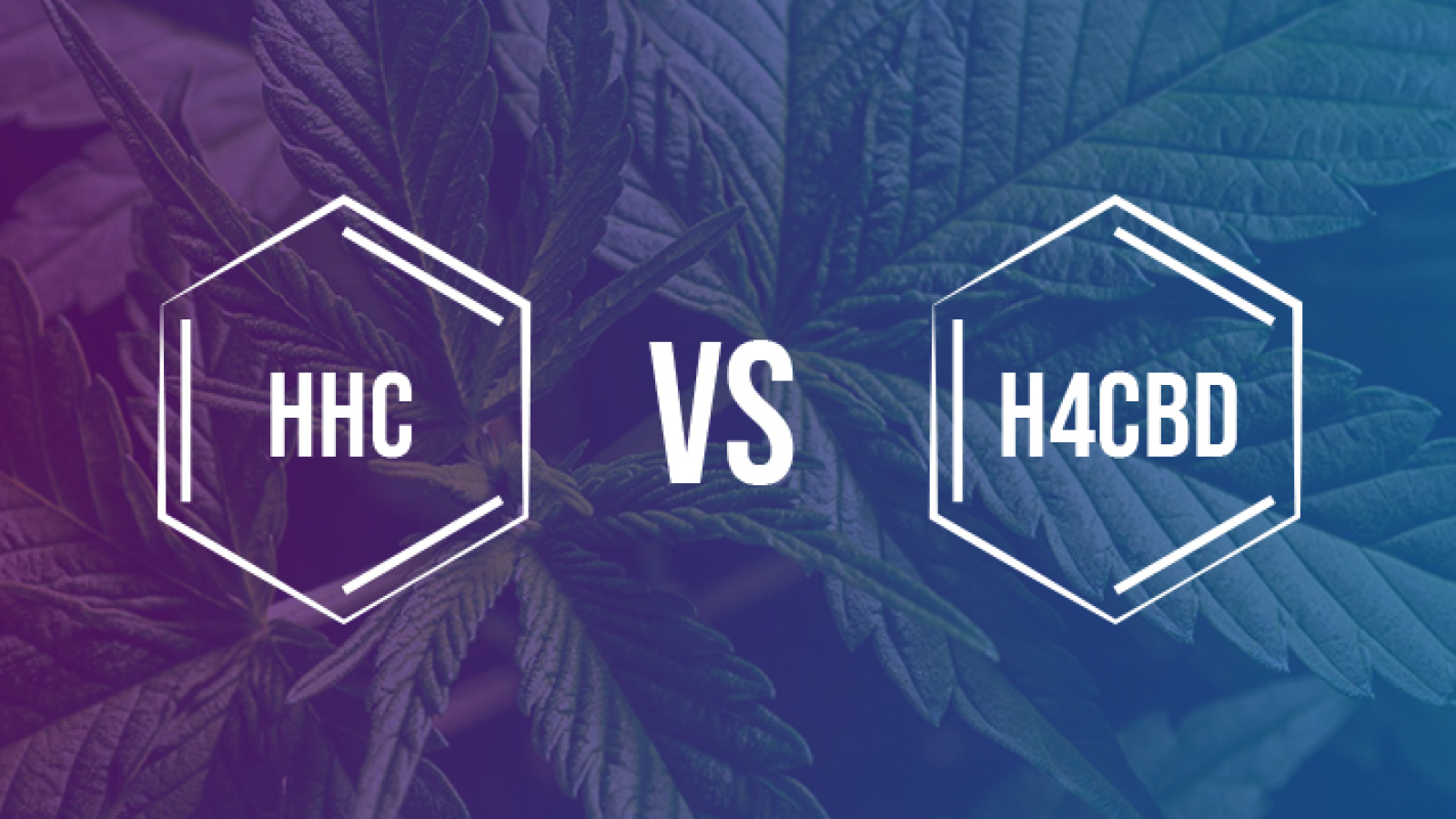Exploring Synthetic CBD such as HHC and H4CBD Products and the Changing Landscape
The CBD market has experienced significant growth in recent years, with an array of products catering to various needs and preferences. However, as the industry evolves, new developments have emerged, including the decline of one synthetic CBD compound, HHC (Hexahydrocannabinol), and the emergence of a promising alternative known as H4CBD.
In this blog, we’ll delve into the world of synthetic CBD products, explore the reasons behind the ban on HHC, and shed light on other synthetic CBD alternatives that are being developed.
Understanding Synthetic CBD Products:
Synthetic CBD products are laboratory-created compounds designed to mimic the effects of natural CBD derived from hemp or cannabis plants. These products are often developed to offer specific benefits or target certain health conditions. While synthetic CBD may have similarities in structure and effects to natural CBD, its production involves chemical synthesis rather than extraction from plants.
Some synthetic CBD products are legal, while others are illegal. The hemp industry has been booming in recent years, with CBD products becoming increasingly popular. However, the recent ban on HHC has cast a shadow over the industry.
Why is HHC Getting Banned?
HHC is a synthetic cannabinoid that is derived from hemp, and it has been gaining popularity as a legal alternative to THC. However, the Food and Drug Administration (FDA) has recently issued a warning about HHC, stating that it is a “new drug” that has not been evaluated for safety or efficacy. As a result, many retailers have stopped selling HHC products.
The FDA is banning HHC because it is a new drug that has not been evaluated for safety or efficacy. The FDA is concerned about the potential health risks of HHC, and it is not yet clear how HHC interacts with other medications.
The ban on HHC has left many people looking for a new legal alternative to THC. One potential alternative is H4CBD. H4CBD is another synthetic cannabinoid that is derived from hemp. However, H4CBD has not yet been banned by the FDA.

Countries Banning HHC
The following countries have banned HHC:
| Canada | Italy | Portugal |
| Estonia | Latvia | Romania |
| Finland | Lithuania | Spain |
| France | Netherlands | Sweden |
| Germany | Poland | Switzerland |
The Rise of H4CBD:
Amid the ban on HHC, a new synthetic CBD compound has emerged, known as H4CBD. H4CBD represents a promising development in the field of synthetic CBD, offering an alternative for those seeking the benefits of CBD in a synthetic form. Like HHC, H4CBD aims to mimic the effects of natural CBD, providing potential relief for various health conditions. However, it is crucial to note that further research is needed to fully understand the safety and efficacy of H4CBD.

Other Synthetic CBD Alternatives:
In addition to H4CBD, researchers and manufacturers continue to explore other synthetic CBD alternatives. These include compounds such as H7CBD, H8CBD, and H9CBD. Each of these synthetic cannabinoids aims to replicate the beneficial properties of natural CBD while potentially offering unique characteristics or targeted effects. However, it is essential to approach these alternatives with caution, as their long-term effects and safety profiles are still being studied.
In addition to HHC and H4CBD, there are several other synthetic CBD products being produced. These products include:
- Delta-8 THC: Delta-8 THC is a naturally occurring cannabinoid that is found in hemp. However, delta-8 THC can also be made in a lab. Delta-8 THC is legal in some states, but it is illegal in others.
- Delta-10 THC: Delta-10 THC is another naturally occurring cannabinoid that is found in hemp. Delta-10 THC can also be made in a lab. Delta-10 THC is legal in some states, but it is illegal in others.
- THC-O: THC-O is a synthetic cannabinoid that is made from delta-8 THC. THC-O is illegal in the United States.
H4CBD and synthetic CBD can be used in a variety of forms, including:
- Tinctures: Tinctures are liquid CBD products that are taken under the tongue. They are a convenient and effective way to consume CBD.
- Edibles: Edibles are CBD-infused food products, such as gummies, cookies, and brownies. They are a delicious and easy way to consume CBD.
- Topicals: Topicals are CBD-infused creams, lotions, and balms. They are applied to the skin to relieve pain, inflammation, and other skin conditions.
- Vaporizers: Vaporizers are devices that heat CBD oil to a specific temperature, turning it into a vapor that can be inhaled. Vaporizing CBD is a fast and efficient way to get CBD into the bloodstream.
- Capsules: Capsules are CBD-infused capsules that can be swallowed. They are a convenient and discreet way to consume CBD.
H4CBD and synthetic CBD can be used in a variety of industries, including:
- Healthcare: H4CBD and synthetic CBD are being studied for a variety of medical conditions, including epilepsy, anxiety, pain, inflammation, insomnia, cancer, Crohn’s disease, multiple sclerosis, Alzheimer’s disease, and Parkinson’s disease. H4CBD and synthetic CBD products, such as tinctures, edibles, and topicals, can be used to treat these conditions.
- Cosmetics: H4CBD and synthetic CBD are being used in a variety of cosmetics, such as lotions, creams, and serums. H4CBD and synthetic CBD can help to reduce inflammation, improve skin elasticity, and reduce the appearance of wrinkles and fine lines.
- Food and beverage: H4CBD and synthetic CBD can be added to food and drinks to create CBD-infused products. H4CBD and synthetic CBD edibles are a convenient way to consume CBD and can be used to treat a variety of medical conditions.
- Pet care: H4CBD and synthetic CBD are being used in a variety of pet care products, such as treats, chews, and oils. H4CBD and synthetic CBD can help to reduce anxiety, pain, and inflammation in pets.
The price difference between plant-derived and synthetic CBD products varies depending on the brand, the quality of the product, and the potency of the product. However, in general, plant-derived CBD products are more expensive than synthetic CBD products. This is because plant-derived CBD products require more time and effort to produce. It is always best to shop around and compare prices before making a purchase.
The Importance of Quality and Regulation:
As the CBD industry expands, it is crucial to prioritize quality and reliability when considering synthetic CBD products. Consumers should seek products from reputable brands that adhere to stringent quality control measures and third-party testing. Additionally, it is important to stay informed about local regulations and guidelines to ensure compliance and consumer safety.
The Future of the Hemp Industry:
The ban on HHC is a setback for the hemp industry. However, the industry is still growing, and there are several other synthetic CBD products that are available. It is likely that the hemp industry will continue to grow in the coming years, and it is possible that new synthetic CBD products will be developed.
If you are considering using a synthetic CBD product, it is important to do your research and find a reputable brand. Synthetic CBD products can vary in quality and potency, so it is important to choose a product that has been tested by a third party and that has a clear label. It is also important to start with a low dose and gradually increase the dose as needed. Synthetic CBD products are generally well-tolerated, but it is important to be aware of potential side effects, such as drowsiness and dry mouth.
The hemp industry is a rapidly growing industry. It is important to stay up to date on the latest trends in the industry and to make informed decisions about which products to use.
Get in touch with trusted industry experts, Tim, or Didier, at THCV (The Hemp and Cannabis Vision). They can provide valuable insights and guidance and supply chain sourcing. Contact them via email at info@thcv.co.za or visit their website at www.thcv.co.za.


Add a Comment